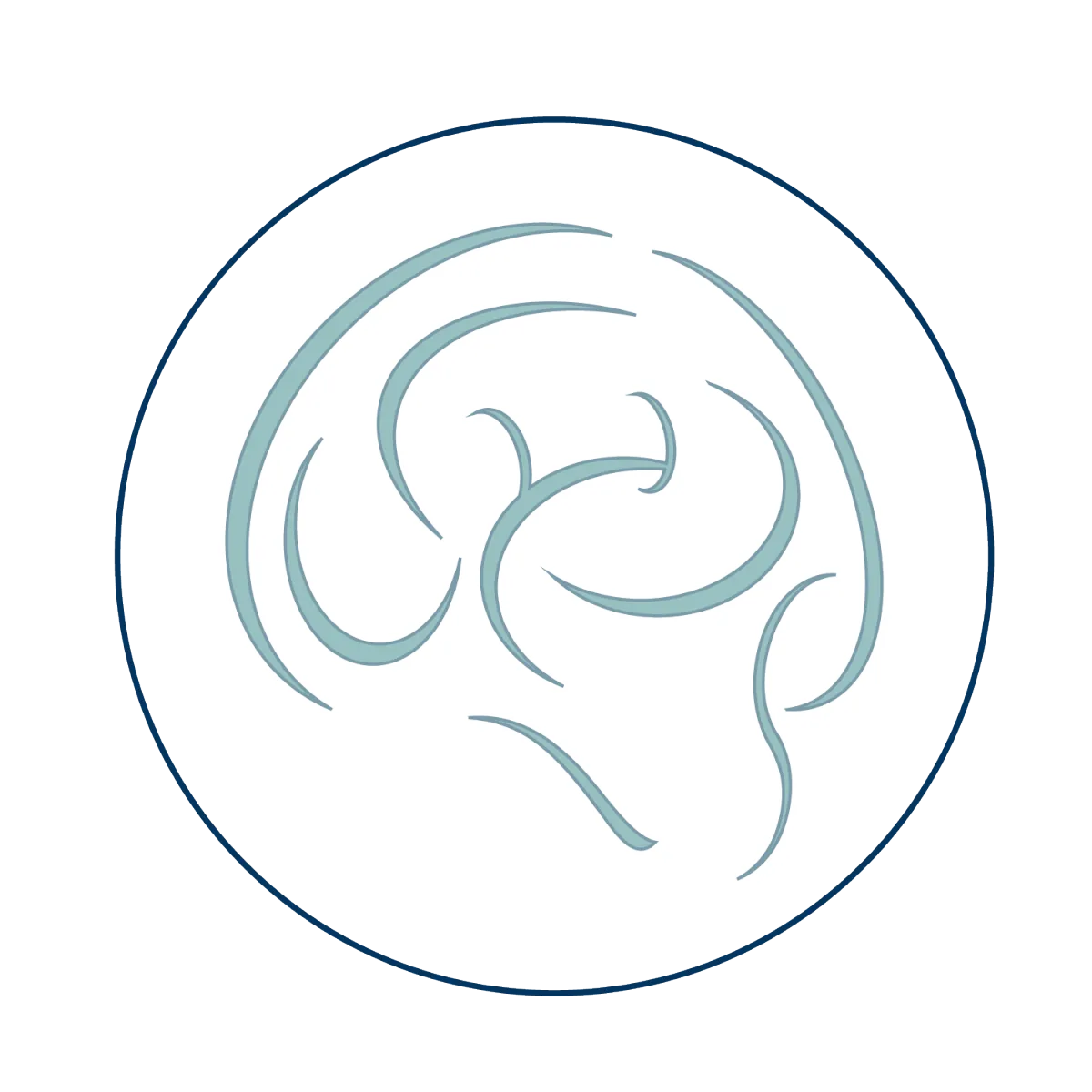Welcome to the Brain & Faith Blog
This is where neuroscience and Scripture meet to bring clarity, calm, and confidence into everyday life. From brain health tips and faith-based practices to practical support for parents of young athletes, you’ll find simple, actionable steps to strengthen your mind, nurture your spirit, and guide your family toward lasting peace and resilience.

The Multitasking Myth: Why Your Brain Craves Focus and How to Give It What It Needs
You're responding to emails while listening to a podcast, scrolling social media during a work call, and mentally planning dinner while helping your child with homework. Sound familiar? In our hyperconnected world, multitasking has become not just normal but expected. We wear our ability to juggle multiple tasks like a badge of honor, believing it makes us more productive and efficient. But what if everything we've been told about multitasking is wrong? What if this constant mental juggling act is actually making us less effective, more stressed, and potentially damaging our brain health?
The Truth About Your Multitasking Brain
Here's the reality that might surprise you: your brain doesn't actually multitask. What we call multitasking is really "task-switching" - rapidly shifting attention from one activity to another. And every time you switch, your brain pays a price.
When you think you're multitasking, your prefrontal cortex is working overtime, constantly deciding which task deserves attention and managing the transitions between activities. This mental juggling act consumes glucose (your brain's fuel) at a rapid rate, leaving you feeling mentally exhausted much faster than if you had focused on one task at a time.
Research shows that people who multitask take up to 25% longer to complete tasks and make significantly more errors than those who focus on one thing at a time. Even more concerning, chronic multitasking can actually change your brain structure, reducing density in areas responsible for cognitive and emotional control.
The Hidden Costs of Constant Switching
Attention Residue and Mental Fatigue
Every time you switch from one task to another, part of your attention remains stuck on the previous task. Researchers call this "attention residue," and it means you're never giving your full mental capacity to what you're currently doing.
Imagine trying to have a meaningful conversation with someone while part of your mind is still thinking about the email you just read. You're physically present, but mentally divided - and both the conversation and your stress levels suffer as a result.
Stress Hormone Overload
Constant task-switching triggers your brain's stress response, flooding your system with cortisol and adrenaline. While these hormones are helpful in genuine emergencies, chronic elevation leads to anxiety, sleep problems, and impaired immune function.
Your brain interprets the constant demands of multitasking as a threat, keeping you in a state of low-level fight-or-flight that's exhausting to maintain and harmful to your long-term health.
Memory and Learning Impairment
When your attention is divided, your brain struggles to encode information into long-term memory. You might read an entire article while checking messages, only to realize you can't remember what you just read. This isn't a sign of aging or poor memory - it's your brain's natural response to divided attention.
The Myth of Productive Multitasking
Why We Believe the Lie
Multitasking feels productive because it keeps us busy and gives us a sense of accomplishment. Checking items off multiple lists simultaneously triggers small dopamine releases that make us feel like we're getting things done. But busy doesn't equal effective, and activity doesn't equal productivity.
The technology industry has also convinced us that multitasking is not only possible but desirable. Apps and devices are designed to fragment our attention, training us to expect constant stimulation and immediate responses to every notification.
The Gender Multitasking Myth
Women are often told they're "natural multitaskers," but this isn't a compliment - it's a burden. Society expects women to manage multiple roles and responsibilities simultaneously, from career demands to household management to emotional labor for their families.
This expectation doesn't make women better at multitasking; it just means they're more likely to experience the negative effects of chronic task-switching, including higher stress levels and mental exhaustion.
The Neuroscience of Focus
How Single-Tasking Transforms Your Brain
When you focus on one task at a time, your brain can enter a state of "flow" - that magical zone where time seems to disappear and work feels effortless. In flow states, your prefrontal cortex actually quiets down, allowing other brain regions to work more efficiently.
Single-tasking also strengthens your brain's attention networks, making it easier to focus deeply over time. Like a muscle that grows stronger with exercise, your ability to concentrate improves with practice.
The Default Mode Network Reset
Focused attention gives your brain's default mode network - the regions active during rest - a chance to reset and consolidate information. This mental downtime is crucial for creativity, problem-solving, and emotional regulation.
When you're constantly switching between tasks, your default mode network never gets this restorative break, leading to mental fatigue and reduced cognitive performance.
Practical Strategies for Single-Tasking Success
Start with Awareness
Begin by noticing how often you actually multitask. For one day, pay attention to moments when you're doing more than one thing at a time. You might be surprised by how automatic this behavior has become.
Keep a simple log of when you catch yourself multitasking and how it makes you feel. This awareness is the first step toward change.
Create Single-Task Environments
Phone-Free Zones: Designate specific times and places where phones aren't allowed. This might be during meals, the first hour of work, or while having conversations with family members.
Notification Management: Turn off all non-essential notifications. Every ping, buzz, or banner is an invitation to multitask. Be ruthless about what truly needs your immediate attention (spoiler: it's probably less than you think).
Physical Barriers: Use physical separation to support mental focus. If you're working on a project, put your phone in another room. If you're spending time with family, close the laptop.
Time-Blocking for Focus
Single-Task Time Blocks: Schedule specific blocks of time for individual tasks. During these blocks, commit to doing only that one thing. Start with 25-30 minute blocks and gradually increase as your focus improves.
Transition Rituals: Create brief rituals to help your brain transition between tasks. This might be taking three deep breaths, writing down what you accomplished, or simply pausing to acknowledge the shift.
Batch Similar Tasks: Group similar activities together rather than scattering them throughout your day. Answer all emails at once, make all your phone calls in sequence, or do all your household tasks in one focused session.
The Art of Mindful Presence
There's something deeply spiritual about giving your full attention to one thing at a time. When Jesus walked the earth, He was remarkably present with each person He encountered. He didn't multitask His way through conversations or divide His attention between multiple people. His presence was complete and transformative.
In our scattered world, choosing to be fully present becomes an act of love - both for ourselves and for others. When we give someone our undivided attention, we're offering them something precious and increasingly rare: the gift of being truly seen and heard.
Single-Tasking as Stewardship
From a faith perspective, our ability to focus and be present is a gift to be stewarded well. When we scatter our attention across multiple tasks, we're not using this gift to its fullest potential. We're settling for mediocrity in multiple areas instead of excellence in one.
Consider how much more meaningful your work, relationships, and daily activities could be if you brought your full presence to each one. This isn't about perfection - it's about intentionality and respect for the mind God has given you.
Overcoming Common Single-Tasking Obstacles
"But I Don't Have Time to Focus on One Thing"
This is perhaps the biggest myth about single-tasking. The truth is, you don't have time NOT to focus. The time lost to task-switching, errors, and mental fatigue far exceeds any perceived time savings from multitasking.
Start small. Choose one important task each day to do with complete focus. Notice how much more efficiently and effectively you complete it compared to when your attention is divided.
"What If Something Urgent Comes Up?"
True emergencies are rare, and most "urgent" matters can wait 30-60 minutes while you complete a focused work session. Set specific times to check messages and communicate these boundaries to others.
For genuine emergencies, establish clear protocols. Perhaps certain people can call (not text) if something truly urgent arises, or you check messages at predetermined intervals.
"I Feel Anxious When I'm Not Multitasking"
This anxiety is real and understandable. Multitasking can feel like a security blanket, giving us the illusion of control and productivity. Start with very short periods of single-tasking and gradually increase as your comfort level grows.
Practice breathing exercises or brief mindfulness techniques when the urge to multitask arises. Remember that this discomfort is temporary and will decrease as you build new neural pathways for focused attention.
Building a Single-Tasking Lifestyle
Morning Focus Rituals
Start your day with single-tasking by choosing one important activity to do with complete attention. This might be drinking your coffee mindfully, reading a few pages of a book, or spending time in prayer or meditation.
This morning practice sets the tone for the entire day and strengthens your focus muscles when your mental energy is at its peak.
Family Single-Tasking
Model single-tasking for your family by giving them your full attention during conversations and activities. Put devices away during family meals and create phone-free family time each day.
Teach children the value of focusing on one thing at a time by helping them complete homework, chores, or creative projects without distractions.
Work Environment Design
Desk Organization: Keep only the materials for your current task visible on your desk. Store everything else out of sight to reduce visual distractions.
Digital Minimalism: Close all browser tabs and applications except those needed for your current task. Use website blockers if necessary to prevent automatic multitasking.
Scheduled Communication: Set specific times for checking and responding to emails and messages rather than responding throughout the day.
The Ripple Effects of Focused Living
Improved Relationships
When you give people your full attention, your relationships deepen. Conversations become more meaningful, conflicts resolve more easily, and others feel valued and heard.
Children especially benefit from parents who can focus completely on them during interactions. This undivided attention builds security and strengthens the parent-child bond.
Enhanced Creativity and Problem-Solving
Focused attention allows for deeper thinking and creative insights. When your mind isn't constantly jumping between tasks, it has space to make connections and generate innovative solutions.
Many breakthrough ideas come during periods of sustained focus, when your brain can dive deep into a problem rather than skimming the surface.
Reduced Stress and Increased Satisfaction
Single-tasking reduces the chronic stress associated with constant task-switching. You'll likely find that you feel calmer, more in control, and more satisfied with your accomplishments.
The quality of your work improves when you can focus completely, leading to better outcomes and increased confidence in your abilities.
Moving Forward with Intention
The goal isn't to never do more than one thing at a time - sometimes life requires juggling multiple responsibilities. The goal is to be intentional about when and how you divide your attention, and to default to single-tasking whenever possible.
Start small. Choose one area of your life where you'll commit to single-tasking for the next week. Notice how it feels, what challenges arise, and what benefits you experience. Use this information to gradually expand your single-tasking practice.
Remember that in a world that profits from your scattered attention, choosing to focus is a radical act. It's a declaration that your mental health, relationships, and quality of life matter more than the illusion of productivity that multitasking provides.
Your brain is designed for focus, not fragmentation. When you honor this design by giving your full attention to one thing at a time, you're not just improving your productivity - you're reclaiming your peace of mind and the joy that comes from being fully present in your own life.
For more strategies on creating mental clarity and reducing overwhelm, explore our Cognitive Reboot guide. If you're ready for personalized support in developing focus and reducing mental scattered-ness, consider a free clarity call.
Brain Health Matters, LLC
Helping busy minds find peace through faith and neuroscience.
© 2025 Brain Health Matters, LLC. All rights reserved.
Terms & Conditions

